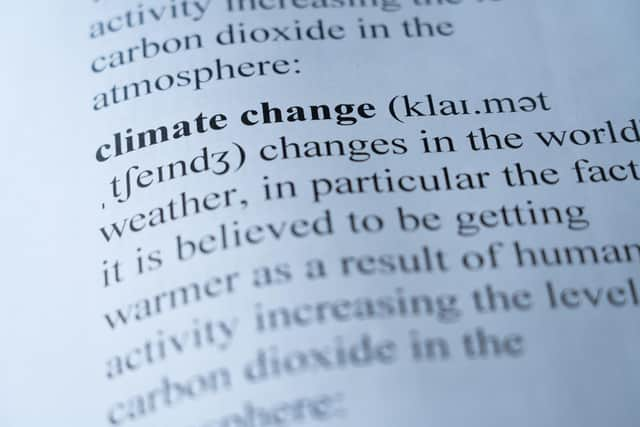Going Green: Climate change words and their meanings


You’re not alone when it comes to understanding the language of climate change and what different words and phrases mean.
There are a lot of terms brands and companies can use that can greenwash consumers into thinking they’re making climate pledges or cutting down their emissions when they might not be.
Advertisement
Hide AdAdvertisement
Hide AdGreenwashing in itself is when brands mislead or misinform consumers into thinking they’ve got an environmentally friendly public image when they might be selling a very harmful product but use a tree logo or something similar to project a greener brand.


Organisations like the Advertising Standards Authority and the Competitions and Markets Authority will clamp down on it, but there are no specific laws protecting environmental claims companies may make.
A study recently found the British public have a low level of understanding environmental language too.
The study, conducted by the insights company Trajectory and the communications agency Fleet Street found only a quarter of people questioned understood what the term ‘sustainable’ meant. It means making something in such a way that it has little impact on the environment.
Advertisement
Hide AdAdvertisement
Hide AdThe study also found terms like “environmentally friendly” and “locally grown” weren’t understood by all consumers either.
The United Nations Development Program have developed a dictionary https://climatepromise.undp.org/news-and-stories/climate-dictionary-everyday-guide-climate-change?fbclid=IwAR0WT8WJ3lUREWcRjhsicaPJPgJUFRytB9egFYSCXa0yyl7rLsb0VS-S6cs which explains what lots of the words around climate change mean.
Unfortunately though, understanding the definitions is only half the battle because there are so many intentionally misleading adverts out there.
I saw an advert recently that championed “sustainable expeditions” and ‘free flights’ to the Antacrtic. There was no clarification on what “sustainable” meant and the Antarctic is one of the most pristine environments on the planet so any tourism is harmful and flying is one of the worst choices for contributing to climate change.
Advertisement
Hide AdAdvertisement
Hide AdThe study also found policies put in place by the government on reducing waste weren’t understood and less than half of those questioned were confident in describing what single use plastics are – which are plastic items like carrier bags or plastic cutlery that are used once and then thrown away.
Polls show over 80% of us care about climate change – no matter our age, voting intention or income, so understanding environmental language to avoid ‘traps’ is important.
It's worth mentioning it’s not all bad news though – the study found younger people have a better understanding of climate language and as they’re the ones who’ll be around the longest that’s got to be a good thing.
Those aged between 18 and 24 were 24 percent more likely to understand the word ‘sustainability’ than those aged over 65 so if you’re struggling to get your head around a term and you can’t find it in the climate dictionary, asking someone younger may help.